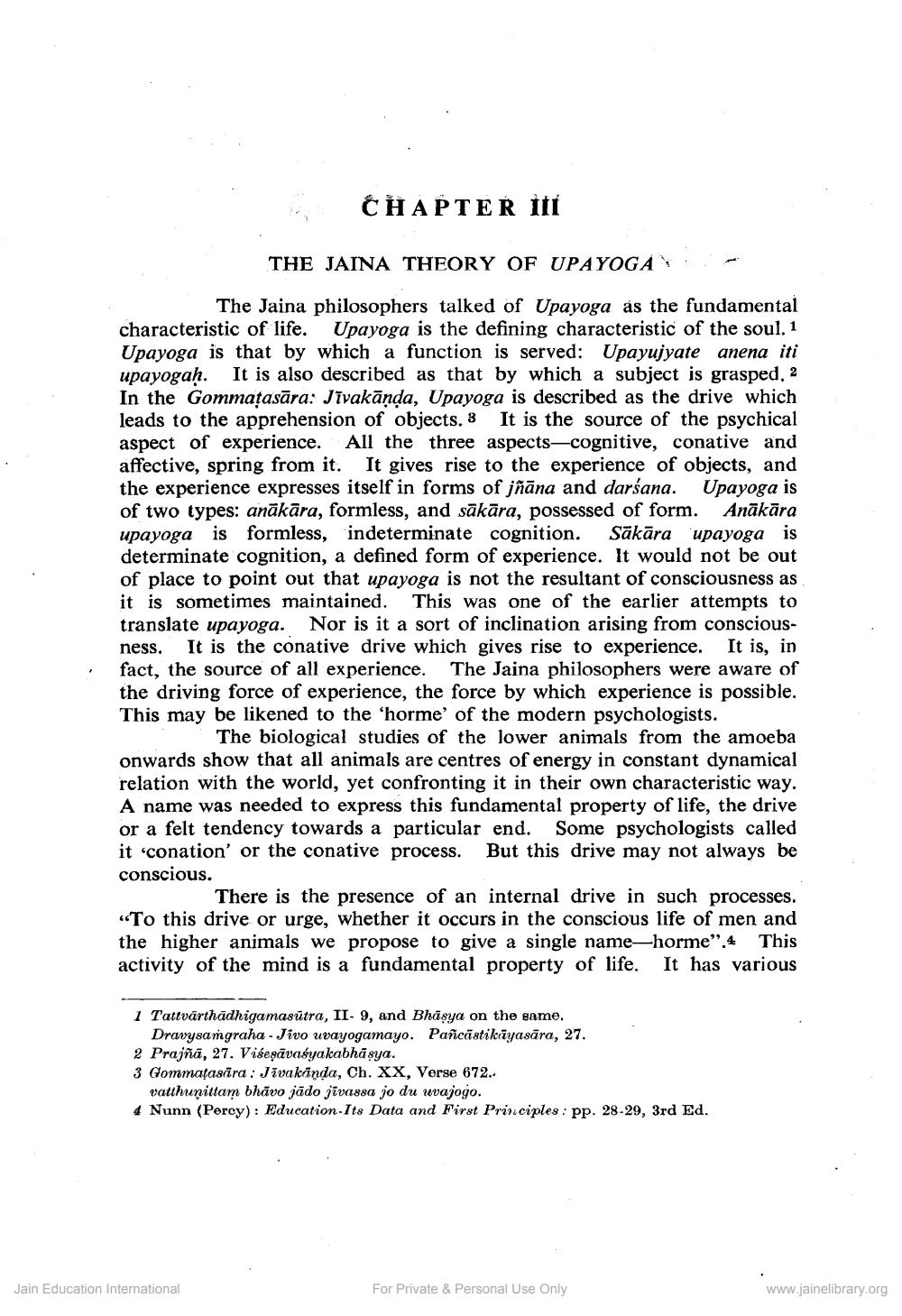________________
CHAPTER iti
THE JAINA THEORY OF UPAYOGA!
The Jaina philosophers talked of Upayoga as the fundamental characteristic of life. Upayoga is the defining characteristic of the soul. 1 Upayoga is that by which a function is served: Upayujyate anena iti upayogah. It is also described as that by which a subject is grasped. 2 In the Gommațasāra: Jivakānda, Upayoga is described as the drive which leads to the apprehension of objects. 3 It is the source of the psychical aspect of experience. All the three aspects cognitive, conative and affective, spring from it. It gives rise to the experience of objects, and the experience expresses itself in forms of jñāna and darśana. Upayoga is of two types: anākāra, formless, and sākāra, possessed of form. Anākāra upayoga is formless, indeterminate cognition. Sākāra upayoga is determinate cognition, a defined form of experience. It would not be out of place to point out that upayoga is not the resultant of consciousness as it is sometimes maintained. This was one of the earlier attempts to translate upayoga. Nor is it a sort of inclination arising from consciousness. It is the conative drive which gives rise to experience. It is, in fact, the source of all experience. The Jaina philosophers were aware of the driving force of experience, the force by which experience is possible. This may be likened to the 'horme' of the modern psychologists.
The biological studies of the lower animals from the amoeba onwards show that all animals are centres of energy in constant dynamical relation with the world, yet confronting it in their own characteristic way. A name was needed to express this fundamental property of life, the drive or a felt tendency towards a particular end. Some psychologists called it 'conation' or the conative process. But this drive may not always be conscious.
There is the presence of an internal drive in such processes. “To this drive or urge, whether it occurs in the conscious life of men and the higher animals we propose to give a single name—horme".4 This activity of the mind is a fundamental property of life. It has various
1 Tattvärthadhigamasútra, II. 9, and Bhasya on the same.
Dravysamgraha - Jivo uvayogamayo. Pañcāstikliyasāra, 27. 2 Prajna, 27, Vớesĩaovakabhã 8ga. 3 Gommatasiira: Jivakanda, Ch. XX, Verse 672..
vatthunittam bhāvo jādo jivassa jo du wajogo. 4 Nunn (Percy): Education-Its Data and First Principles : pp. 28-29, 3rd Ed.
Jain Education International
For Private & Personal Use Only
www.jainelibrary.org




